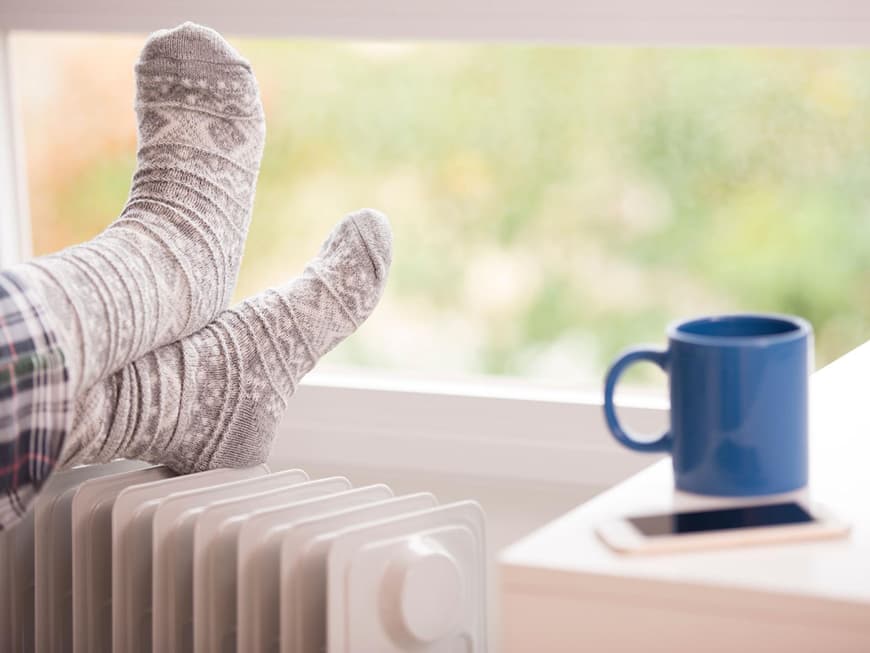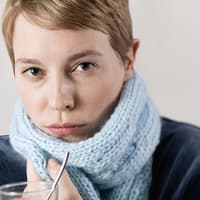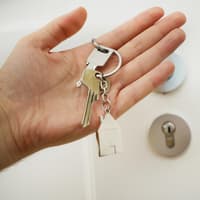
What should I pay attention to with radiators in order to heat properly in winter?
"To ensure that the heat is distributed evenly throughout the room, radiators should not be covered by furniture or curtains. The thermostat valve should also always be unobstructed so that you can reach it quickly at any time. In addition, the radiator should not be dirty; special brushes and vacuum cleaner attachments are available for cleaning."
Why is regular bleeding so important?
"Because otherwise the radiators are no longer completely filled with water and perform significantly less well. If you hear a gurgling sound, it's high time: open the valve until no more air escapes, but water comes out. Then quickly close it again. It's best to hold a cloth or bowl underneath when bleeding the air so that nothing drips onto the floor."
How does it help to reduce the temperature slightly?
"A reduction of just one degree will save you around six percent on heating costs. For a single-family home with an average annual consumption of around 20,000 kilowatt hours of natural gas, that's around 100 euros a year."
Is it best to switch off the heating at night?
"No. If you switch it off completely at night or when you leave the house, the rooms cool down considerably. Heating them up again is more energy-intensive than keeping the room temperature constant. In the short term, you should therefore only cool down by a few degrees at most. If you are not there for longer, the heating can continue to run at around 14 to 16 degrees."
What applies to rooms that are not in use?
"These should also have 14 to 16 degrees. This prevents the heating in the next room from having to heat the adjacent wall as well."
What else can I do to heat more efficiently?
"Especially in older apartments and houses, you often get the impression that it is uncomfortably cool at the windows and doors. This may be because they are not sealing properly. You can check this by placing a tea light in front of the affected area: If the flame flickers strongly, cold air is being drawn in. Foam strips, seals from the DIY store and draught excluders can help."
How can I reduce heat loss in the home?
"By closing blinds and shutters at night and when you're away - that way the heat doesn't escape outside. And: always close the doors between rooms that are heated differently. The consumer advice center also offers an energy check, all information can be found on the website www.verbraucherzentrale-energieberatung.de"
Comfortable temperature for every room
The living room
The heart of every home. The usual recommendations are 20 to 21 degrees.
Bathroom and children's room
Of course, it should be really cozy and snug here. Most people find 21 to 23 degrees very pleasant.
The kitchen
A lot of cooking, sizzling and baking goes on here - so more than 18 degrees is generally not necessary.
The bedroom
Between 16 and 18 degrees are recommended for a "good night's sleep". Use your personal comfort temperature as a guide.






